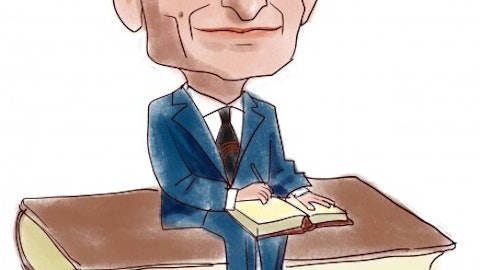In this article, we will be taking a look at the 20 countries with the highest rates of autism. If you are not interested in reading the details about the global autism landscape, you can skip to the 5 Countries With Highest Rates Of Autism.
Autism, a complex neurodevelopmental disorder, has garnered significant attention and research in recent years due to its increasing prevalence worldwide. As communities and healthcare systems become more adept at identifying and diagnosing individuals on the autism spectrum, understanding regional variations in autism rates becomes more crucial.
Among the myriad factors that contribute to this disorder, regional disparities in autism prevalence have been observed, with some countries reporting notably higher rates compared to others. Exploring the countries with the highest rates of autism sheds light on potential environmental and genetic influences and underscores the importance of raising awareness and providing adequate support for individuals and families affected by autism on a global scale.
Understanding the Global Autism Landscape: An Overview of Prevalence Variation
Autism is a neurodevelopmental disorder that affects individuals across the globe. According to WHO, it is estimated that approximately 1 in 100 children worldwide have autism, with some studies suggesting that this number may be even higher in certain regions. In terms of financial impact, the cost of caring for individuals with autism can be significant.
In the United States alone, it is estimated that the lifetime cost of care for an individual with autism is between $1.4 million and $2.4 million, which underscores the importance of early intervention and access to resources for individuals with autism, as it can help to improve outcomes and reduce the overall financial burden on families and society as a whole. Despite these challenges, there is hope for the future as efforts to increase funding for autism research and improve access to healthcare and educational resources continue to gain momentum.
The Impact of Cultural and Socioeconomic Factors on Autism Rates
Autism rates have long been a concern, influenced by cultural and socioeconomic factors significantly influencing its prevalence. Studies show higher rates among certain cultural groups, like Caucasians and Asians, than African Americans and Hispanics. Socioeconomic status also links to autism, with low-income families reporting higher cases. These findings carry vital implications for businesses, shaping inclusive policies and practices for employees and customers on the spectrum.
Prioritizing knowledgeable and sensitive staff, offering flexible work arrangements, and sensory-friendly environments fosters inclusivity. Caring for individuals with autism costs around $126 billion annually in the US alone, emphasizing the need for an accommodating environment, benefitting individuals and businesses by reducing costs and boosting productivity.
Addressing Challenges and Opportunities for Businesses in Supporting Autism Communities
As a business, recognizing and addressing the challenges and opportunities of supporting autism communities is crucial. Understanding and accommodating the unique needs of individuals with autism can be challenging, but by training employees to be more patient and understanding and making necessary physical accommodations, businesses can create an inclusive workplace environment. Moreover, companies can capitalize on the opportunities of supporting autism communities.
Actively recruiting individuals with autism and providing them with necessary accommodations can diversify the workforce and aid in the success of both the individual and the business. Partnering with local autism organizations and donating a portion of profits to support their programs and services can also demonstrate a commitment to positively impacting the community. According to recent statistics, businesses prioritizing diversity and inclusion tend to have higher employee satisfaction rates and increased profits.
International Collaboration and Research Efforts for Autism Understanding and Intervention
Businesses have also recognized the importance of improving autism understanding and intervention. Many companies are funding research projects, with Microsoft Corporation (NASDAQ:MSFT) committing to its AI for Accessibility program, which aims to develop AI-powered tools to assist individuals with disabilities.
Other companies, such as International Business Machines Corporation (NYSE:IBM) and SAP, have implemented inclusive hiring practices to provide employment opportunities for individuals with autism. The benefits of international collaboration and research efforts for autism are numerous. Improved diagnostic tools and interventions can lead to earlier diagnosis and more effective treatments. Research has also shown that early intervention can significantly impact long-term outcomes for individuals with ASD.
Additionally, better support for individuals with ASD and their families can improve their quality of life and reduce the economic burden of the disorder. As businesses continue to enhance autism understanding and intervention, it is essential to prioritize the needs and perspectives of individuals with ASD in all decision-making processes. By working together, we can positively impact the lives of those affected by autism around the world.
Innovative Approaches to Autism Treatment: Leading Companies and Medications
Many companies are working towards innovative approaches to autism treatment. Some of the leading companies in this field include Roche, Novartis AG (NYSE:NVS), and Pfizer Inc. (NYSE:PFE), which is one of the most profitable pharmaceutical companies in the world. These companies are focused on developing medications that can effectively treat the symptoms of autism.
One of the most promising medications in development is called balovaptan. This medication is being developed by Roche and has shown positive results in clinical trials. It works by blocking a hormone called vasopressin, which has been linked to social behavior in humans.
Another medication that has shown promise is called arbaclofen. This medication is being developed by Seaside Therapeutics and works by targeting a protein called mGluR5, which is involved in the regulation of brain activity. Clinical trials have shown that this medication can improve communication and social behavior in individuals with autism.
Other companies, such as Novartis AG (NYSE:NVS) and Pfizer Inc. (NYSE:PFE), are developing medications that target specific symptoms of autism, such as anxiety and aggression. These medications by Novartis AG (NYSE:NVS) and Pfizer Inc. (NYSE:PFE) are still in the early stages of development, but they hold great promise for individuals with autism and their families.

Photographee.eu/Shutterstock.com
Our Methodology
For our methodology, we have ranked the countries with the highest rates of autism based on autism rates per 10K children in countries’ populations as of 2023. For the accuracy of our data, we relied on World Population Review.
Here is our list of the 20 countries with the highest rate of autism.
20. Iraq
Autism Rate Per 10k: 89.40
Autism affects around 72,000 people in Iraq, with numbers expected to rise due to limited awareness and healthcare access. Daily life is impacted by communication and social challenges, leading to isolation. High costs and limited employment opportunities create economic challenges. Iraq is taking steps to improve early identification and support through government policies and NGOs, but more efforts are needed.
19. Algeria
Autism Rate Per 10k: 89.40
Autism is a complex neurodevelopmental disorder affecting around 450,000 individuals in Algeria. It creates challenges in communication, social interactions, and daily activities. Treating autism is costly, impacting families, especially those with lower incomes. However, Algeria is trying to raise awareness and support through organizations and government initiatives for better healthcare and education.
18. Egypt
Autism Rate Per 10k: 89.40
Autism is a growing concern in Egypt, with an estimated 89.40 per 10k children being affected, making Egypt one of the countries with the highest rates of autism. Interestingly, a study also concluded that presence of numerous factories near residential places in the Sharkia governorate is also a risk factor to autism in the vicinity.
17. Lebanon
Autism Rate Per 10k: 89.80
Autism affects people worldwide, including Lebanon, with about 89.80 per 10k children affected, making Lebanon one of the countries with the highest autism rates. Lack of awareness leads to many undiagnosed cases. It hinders social interactions, communication, and daily activities. The economic impact in Lebanon is significant due to high treatment costs and limited employment opportunities for individuals with autism.
16. Mexico
Autism Rate Per 10k: 89.90
Autism is a severe disorder affecting a significant number of people in Mexico, approximately one to four per 1000 inhabitants. The economic impact is substantial, just like in other countries, as treatment costs are high, leading to financial strain for families.
15. Sudan
Autism Rate Per 10k: 90.10
Autism affects around 90.10 per 10k children in Sudan. The disease hampers social interactions, communication, and daily activities, making relationships and education complex.
14. Iran
Autism Rate Per 10k: 90.30
Autism is a growing concern in Iran, affecting around 1.9% of school-aged children, which poses challenges for thousands of families dealing with the impact on communication, socialization, and daily tasks.
13. Yemen
Autism Rate Per 10k: 90.40
Autism affects around 90.40 per 10k people in Yemen, making it stand 13th among the countries with the highest autism rates. The situation is especially dire, given the fact that Yemen is in the midst of civil unrest.
12. Libya
Autism Rate Per 10k: 90.60
Autism affects many people in Libya, estimated at 90.60 per 10k children. The situation is made more complicated by ongoing civil conflict in the country that has been going on since the fall of Gaddafi regime. The infrastructure in the country is devastated, making it harder to diagnose and treat autistic children.
11. Sweden
Autism Rate Per 10k: 90.80
Individuals with autism and their families can access various services like special education, speech therapy, and occupational therapy in Sweden. Financial assistance is provided by the government to support therapies and essential expenses. There are also dedicated organizations and advocacy groups working to raise awareness and enhance the lives of those with autism and their families.
10. Palestine
Autism Rate Per 10k: 91
In Palestine, an estimated 91 per 10k children are affected by autism. Treatment for autism in Palestine varies depending on the severity of the disorder and the resources available. Some families may opt for behavioral therapy, while others may choose medication or a combination. However, the cost of treatment can be a significant barrier for many families and access to specialized services is limited in some parts of the country.
9. Afghanistan
Autism Rate Per 10k: 91.20
Autism is a severe issue in Afghanistan, affecting around 91.20 per 10k children on the spectrum.This is a very rough estimate since there are no known studies analyzing ASD prevalence in the country.
8. Syria
Autism Rate Per 10k: 91.90
The autism rate in Syria is very high, affecting an estimated 91.90 per 10k children. The Syrian infrastructure has already been devastated by war, making medical/psychotherapeutic intervention harder. In addition, accurate data on prevalence of ASD as well as its relative concentrations in different areas in the country is lacking, but ASD prevalence is thought to be high in the country.
7. Jordan
Autism Rate Per 10k: 92.10
Autism affects a significant number of people in Jordan. Despite the challenges posed by autism, Jordan has made significant strides in treating and managing the condition. The country has established specialized centers and clinics that offer support and treatment to individuals with autism and their families. However, a study showed that the general population in Jordan has a poor understanding of ASD, showcasing that there are significant lapses about autism when it comes to public awareness in Jordan.
6. Kuwait
Autism Rate Per 10K: 97.70
In Kuwait, around 97.70 per 10k children are affected by autism. In contrast, Kuwait has made significant strides in supporting individuals with autism. The Kuwait Autism Center provides services and support for individuals with autism and their families, which includes diagnostic assessments, therapy, and educational programs. The center also works to raise awareness about autism and provide training for professionals who work with individuals with autism.
Click to see and continue reading the 5 Countries With The Highest Rate Of Autism.
Suggested Articles:
- 20 Countries With The Highest Rate Of Diabetes
- 20 Countries With Highest Rate Of Down Syndrome
- 20 Countries with the Highest Rate of Dementia
Disclosure. None: 20 Countries With The Highest Rate Of Autism is originally published on Insider Monkey.





